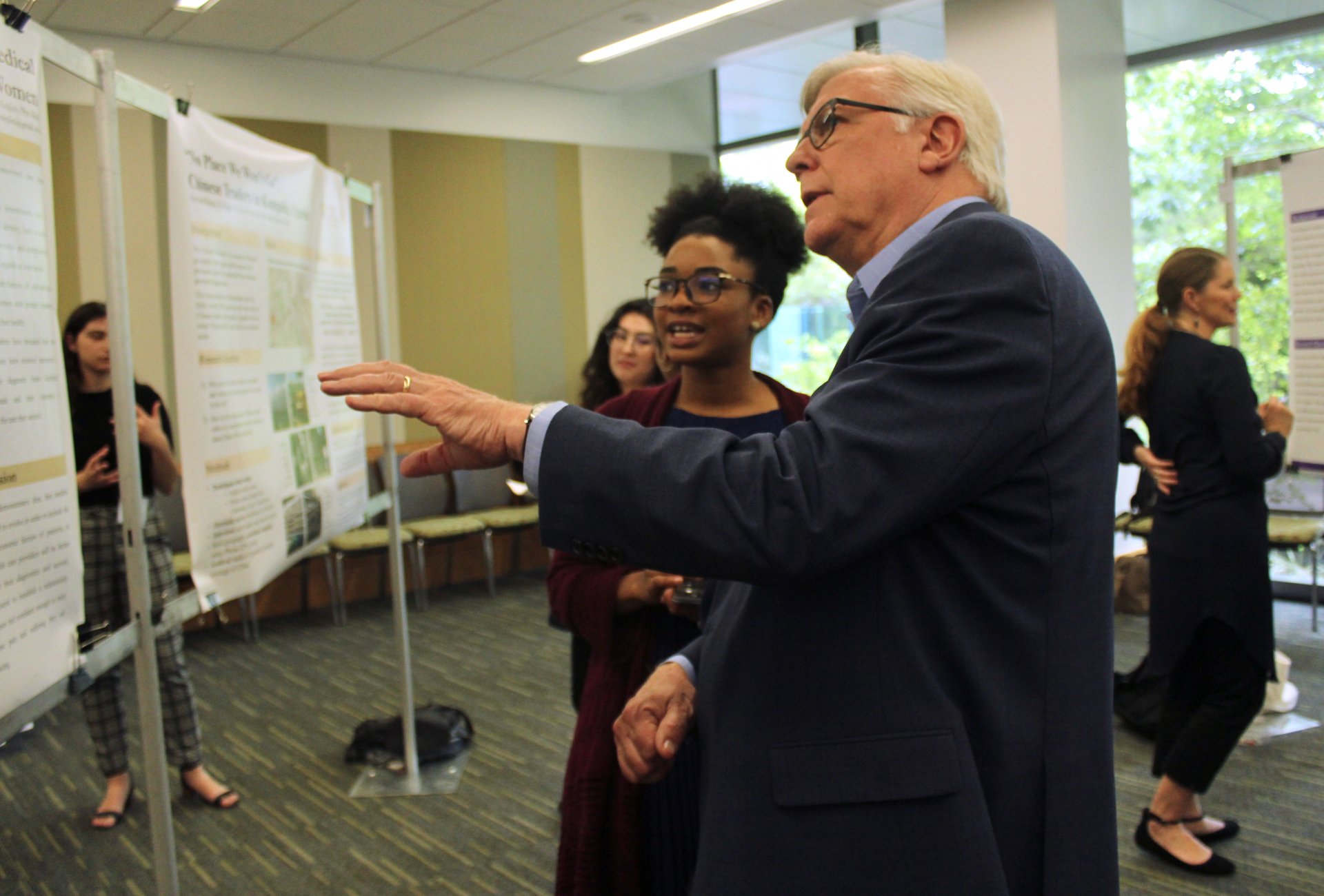On April 18, a group of hand-picked liberal arts students who have conducted exceptional research projects presented their posters at the Dean’s Research Reception. College faculty and staff, administrators and Dean Randy Diehl all gathered to learn about the outstanding work liberal arts students have conducted.
The annual event is a part of UT Austin’s Undergraduate Research Week, which is hosted by the Senate of College Councils and the Office of Undergraduate Research in the School of Undergraduate Studies. Colleges and organizations across campus coordinate events throughout the week to showcase the work of undergraduate student researchers.
Learn more about six of the 16 featured researchers and their projects in the Q&A’s below.
A Nation Imagines Womanhood: State Feminism and Nationalism in Postcolonial Egypt
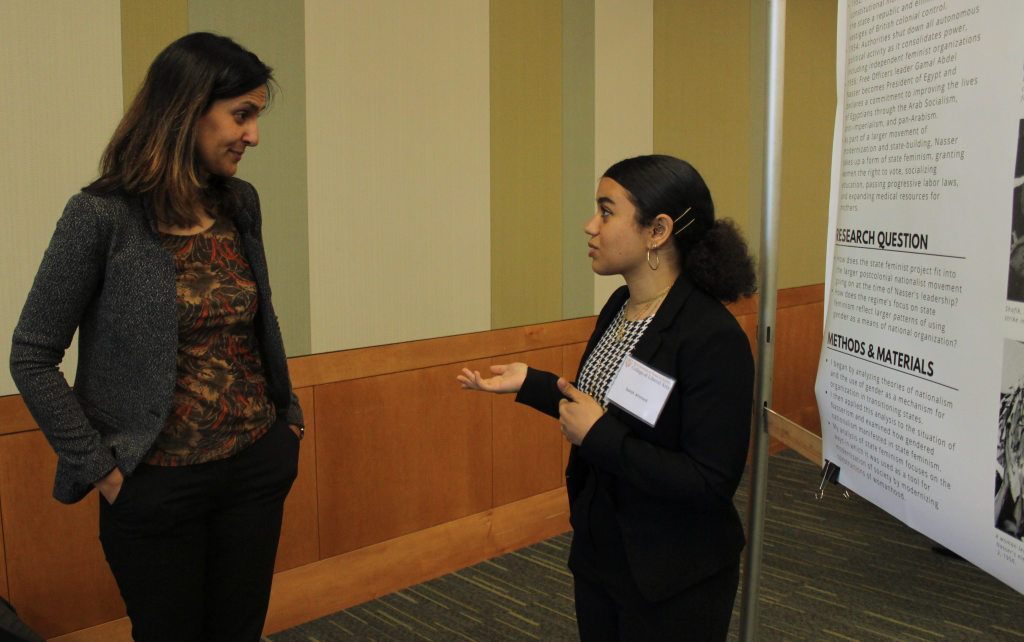
Sarah Ahmed is an International Relations & Global Studies and Middle Eastern studies senior from Cairo, Egypt and San Antonio, Texas. Her project focuses on the ways in which anticolonial nationalism and state-building rely on preexisting gender structures, specifically in the case of Egypt in the wake of the Revolution of 1952.
How did you decide on your topic?
Before transferring to UT, I was a Political Science freshman at the American University in Cairo. In my Political Science 101 class, I was assigned a group project on Nasserism, the ideology that developed alongside the presidency of Gamal Abdel Nasser. What my groupmates and I found was that Nasser was a charismatic leader who was dedicated to securing the rights of the oppressed. During his leadership, Egypt played a major role in the Nonaligned Movement, expanded the rights of the working class, and stood against imperialist and colonizing forces in the region. I was enchanted by Nasser’s vision and his dedication to opposing injustice.
A few years later, I read about Dorreya Shafik, an organizer and writer who marched 1,500 women to storm Parliament in 1951, went on a hunger strike to protest the absence of women in the committee formed to draft the new constitution in 1954, and spoke on an international scale on behalf of Egyptian women. Although she was initially an ardent supporter of the Revolution and Nasser’s leadership, she grew disillusioned by Nasser’s uniparty system and the regime’s means of consolidating power as they built a new nation. In 1957, after criticizing Nasser in a letter addressed to the United Nations, Dorreya was put under house arrest and her name was banned from being printed in any publication. Banished into oblivion and erased from history, Shafik died in obscurity in 1975 when she threw herself off of her 5th floor balcony.
To me, hearing the story of Nasser as an international leader for liberation and that of Shafik as a woman consciously erased from history, I felt that there was an incongruency. I wondered how a story like Shafik’s could develop under the leadership of a man so dedicated to securing the rights of his people. I wanted to understand this contradiction and how it came about. I began examining the history of the feminist movement in Egypt, as well as the relationships between nationalism and gender. I then found that to answer the woman question that plagues all leaders throughout history, Nasser implemented state feminist policies. I worked to answer the questions of how Nasser’s state feminist project fit into his larger nationalist vision of modernizing Egypt, and how the regime’s focus on state feminism reflected broader patterns of using gender as a mechanism of national organization.
What were your findings?
I found that although Nasserist state feminism created unprecedented educational and employment opportunities for women, these policies tied women’s economic livelihood to the state, creating a dependency on the government and guaranteeing women’s support. Generally, state-building, lawmaking and construction of national identity are built on existing gender constructions and work to recast the roles of women to reflect the goals of the male leadership of the country.
What kind of effect could your research have?
My research adds to a small body of work on state feminism in Egypt, and I am honored to be contributing to the study of the lives of Egyptian women by Egyptian women. It is rare for Egyptian women – or Middle Eastern and North African women broadly – to be written about in a way that is not laced in orientalism, and I am working to do them the service of being written about as people and not merely subjects. Both adding to an often-ignored study and approaching it in a way that emphasizes the humanty of the people I am writing about is valuable in itself.
Counter-Narratives to Counter Violence: The Importance of Community-Led Development in Eastleigh, Nairobi
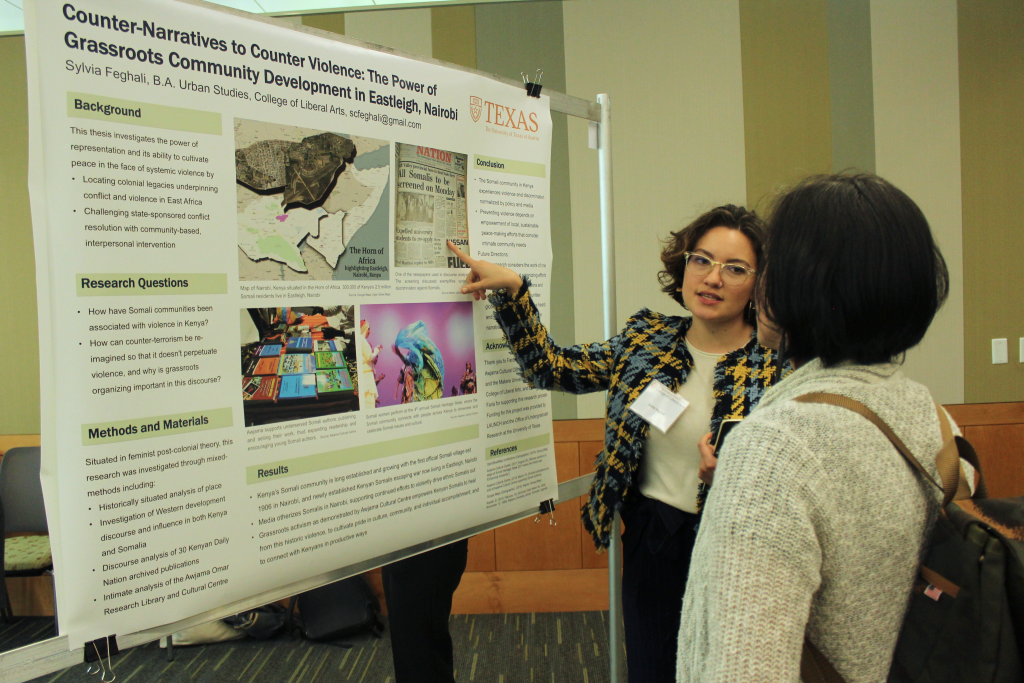
Sylvia Feghali, an urban studies and sustainability studies senior from Qatar, researched the narrative around terrorism and violence in the Horn of Africa as it has been woven into a global characterization of the Somali community.
How did you conduct your research?
I focus my studies on the Somali community in Nairobi, Kenya asking: How can Somali community-based organizing build peace when embedded in systemic violence? Can orientalist narratives be challenged through community reclamation of representation in a way that inspires change?
I did a lot of secondary research on theory—both my own grounding theoretical framework at the intersection of feminist political geography and post-colonial theory, as well as development and security theory to understand the policies and ways of thinking that have perpetuated conflict and violence in the community I studied.
I also conducted critical discourse analysis of newspaper articles from the Kenyan newspaper The Daily Nation. This included articles from 1989, which were only accessible via the work of archivist Birungi Kasfah at the Makere University Library in Kampala, Uganda. I also analyzed articles from 2013 archived online. Both years were selected as they corresponded with moments of tension between the Kenyan state and people of Somali heritage.
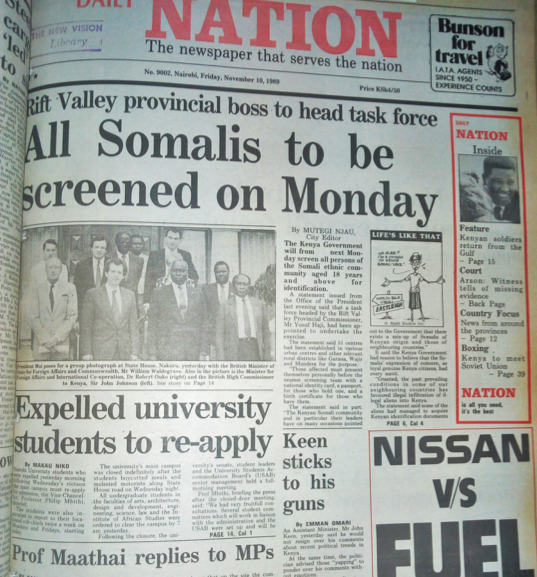
Finally, I base much of the heart of this work on an intimate, but virtual, case study of the Awjama Cultural Centre, a Somali cultural center and research library in Eastleigh, Nairobi, home to over 300,000 Somali Kenyans and Somali refugees. I conducted phone interviews with the founder and director of the Centre, Fardowsa Jama, and kept in close email correspondence with her and several staff members at the Centre. Part of their success as a community center is due to their vibrant social media presence which connects people across the community both physically in Eastleigh and beyond.
My research “site” in many ways became Awjama’s Facebook and YouTube channels. I studied the programs they put together, the ways they market and present themselves, the community’s engagement with their pages, and the ways in which community members engaged with one another on Awjama’s platforms. I wove all these studies together to understand how Awjama, as a community-based organization has produced new ways for Somali people in Nairobi to engage with the city and reclaim their voice.
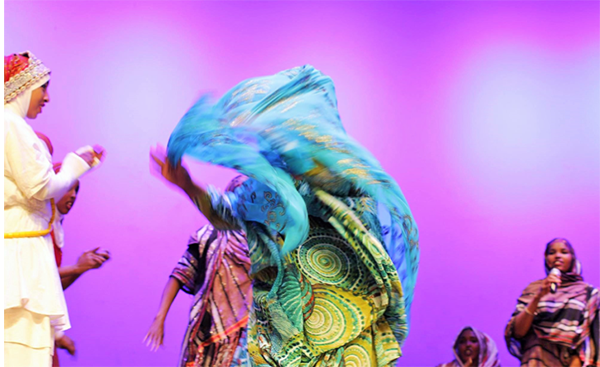
What element of your research do you find most fascinating?
It was all incredibly fascinating. My favorite part was linking everything together. The theory offers different perspectives through which to read the same kinds of material. The history offers context that also alters readings. Looking at state-scale understandings of a problem and finding ways to connect this to embodied, very personal experiences poses another challenge and way of thinking. Factoring in the way the media and public perception has power gives it another spin. I think the most fascinating element was just how different each piece of my research was, but that they all had to in some way be in conversation with one another for the entire picture to come together.
Was were your findings?
The Somali community in Kenya experiences violence and discrimination normalized by policy and media. Preventing violence depends on empowerment of local, sustainable peace-making efforts that consider intimate community needs. Grassroots activism as demonstrated by Awjama Cultural Centre empowers Kenyan Somalis to heal from historic violence, to cultivate pride in culture, community, and individual accomplishment, and to connect with Kenyans in productive ways.
Representation and Resistance in Online Video Games: Queergamers and Transgressive Play
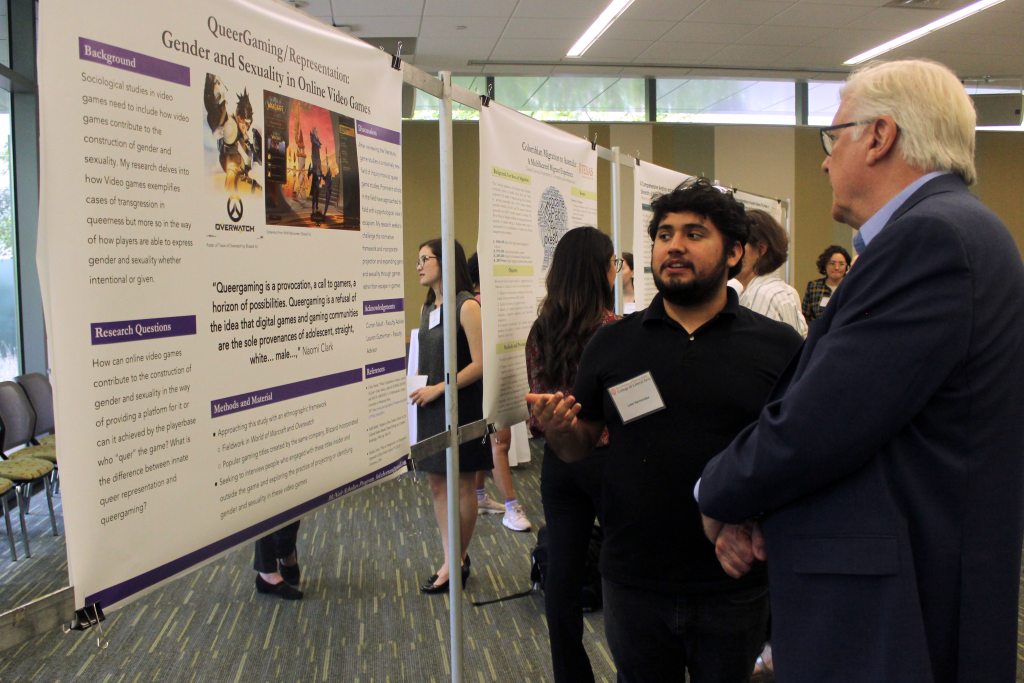
Luke Hernandez is a government and Mexican American and Latina/o studies junior from San Antonio, Texas. He is a University Leadership Network and Gateway Scholar, as well as a 2018-19 McNair Scholar. His research is the first steps into understanding how online video games and players interact with one another in a way that constructs gender and sexuality in the real world. Currently he’s focusing on queer video game representations and the theory of “QueerGaming” and how that impacts communities.
How did you conduct your research?
The research is an ongoing project. I have just done a literature review about the intersections of media studies and queer theory. For the future, I want to conduct an ethnography of people who have played games in addition to a comparative analysis of the literature.
There are two areas that I’m analyzing in my project. Queer representation, in this case, is confirmed/canon queer content that is purported by the game company. “QueerGaming” is the phenomena of what most of my research is about and it means how a person “queers” the game, which allows many things to be exemplified.
What element of your research do you find most fascinating?
How it’s possible to apply the theory and methodology to games that were not previously thought of being “queer” or impacting the queer community. It’s the many possibilities that fascinate me and what helps me strive to go more in depth with this kind of research.
What kind of effect do you think this research could have?
People underestimate the impact video game culture has on society. The inquiry of finding the correlation between violence and video games is the first thing that people have in mind on the subject of researching video games. I plan to shift the paradigm of why people play video games and what that looks like. I believe that video games lend themselves to the experimentation and construction of sexualities/genders, which needs to be documented and analyzed.
No Place We Won’t Go: Chinese Traders in Kampala, Uganda
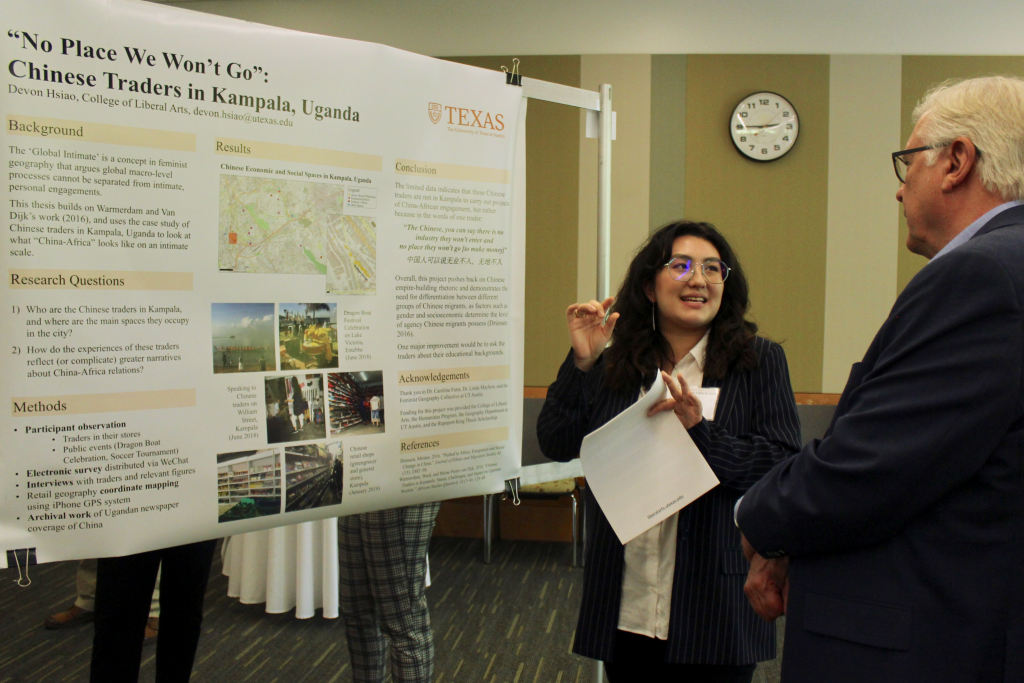
Devon Hsiao is a senior majoring in humanities and Korean and a member of the Feminist Geography Collective. For her senior thesis project, Hsiao examined the personal experiences of Chinese traders in Kampala, Uganda, and how their attitudes and experiences either support or challenge dominant narratives in the field of Chinese-African relations.
How did you decide on your topic?
I first came into contact with the idea of China-African relations in my internship at UNICEF China in 2016, which really informed and shaped my academic interests. In the humanities program, you design your own major and course of study, so I have focused on taking classes in African studies, Asian studies and history. I knew that for my thesis, I wanted to do something on narratives in China-African relations, so my advisor Caroline Faria and the Feminist Geography Collective helped me narrow down the scope of my research topic to the specific case study of Chinese traders in Uganda.
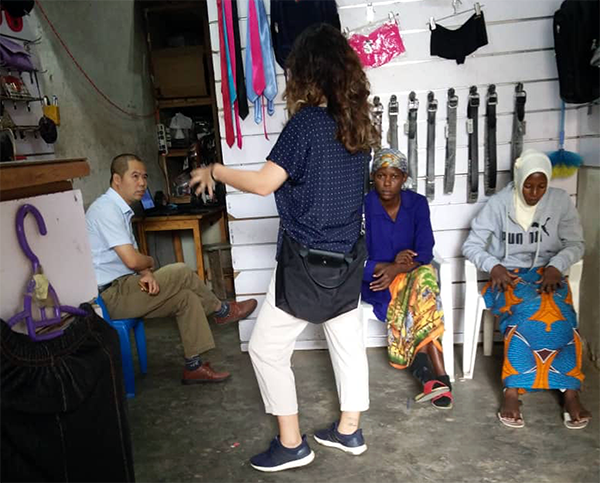
How did you conduct your research?
My data was mostly gathered during two months of fieldwork in Kampala, Uganda, using a multi-method approach. I conducted interviews (pictured) and a survey in Mandarin, as well as participant observation, retail mapping and some archival work in the Makerere University library.
What were your findings?
The Chinese small-scale traders in Kampala, Uganda, are mostly located along William Street in the Nakasero region of the city, and are wholesale businesses that sell shoes and bedding. Their experiences differ depending on whether they are the owners of these trading businesses or contracted employees, but in general my findings suggest that when examined at this intimate level, the Chinese government rhetoric of China-African relations as “South-South cooperation” and “Win-Win Development” do not hold up.
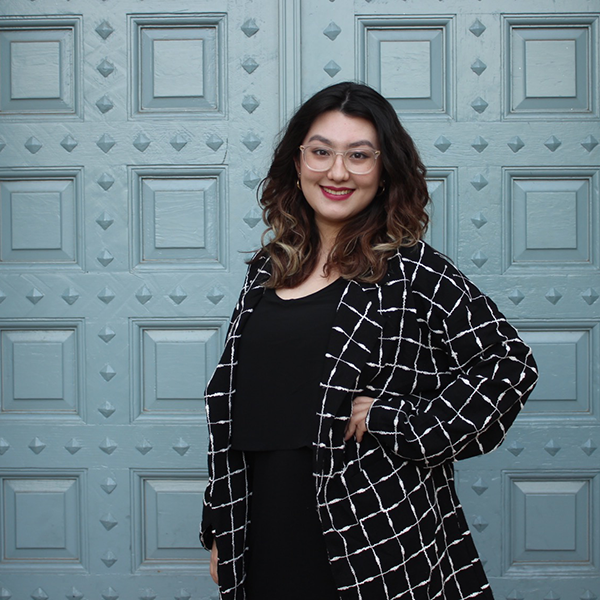
What kind of effect do you think this research could have?
I hope that my research challenges how people talk about not just China-African relations, but international relations and globalization in general. So much of the discussion on political economy and trade relations is conducted through this macro-level institutional lens concerned with things like trade deals, million-dollar contracts and loans etc. I believe there is real value in examining micro-level personal interactions in evaluating globalization and trade.
Too Often Unheard: The Narratives and Medical Experiences of Misdiagnosed Black Women
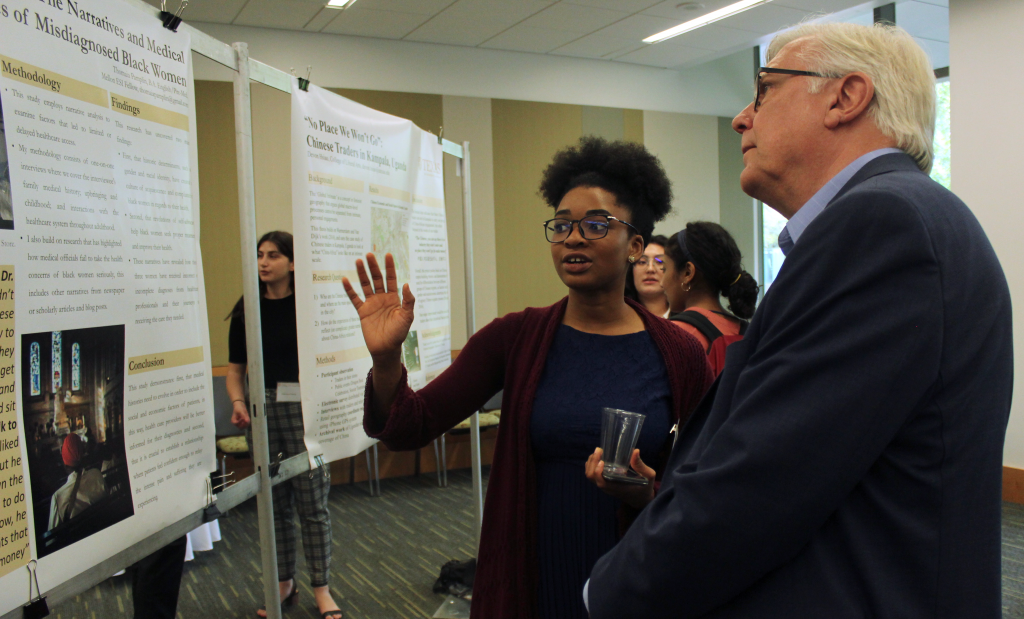
Thomaia Pamplin, an English postbaccalaureate student and Mellon engaged scholar initiative fellow, studied the narratives of misdiagnosed women from a specific lower-income neighborhood in Houston to discover the factors that lead to delayed healthcare, or lack of access to quality healthcare.
How did you decide on your topic?
I grew up in the same community. My education has opened my eyes to the numerous discrepancies throughout this community. I hope that my findings contribute to bettering the resources for my community.
How did you conduct your research?
I took one-on-one, face-to-face interviews with participants. I drew similarities between their stories and also looked into the historical, geographical and economic statistics of this region.
What were your results?
This research has uncovered two main findings: First, that historic determinants, such as gender and racial identity, have created a culture of acquiescence and compliance in black women in regards to their health. Second, that revelations of self-advocacy help black women seek proper treatment and improve their health.
What kind of effect could this research have?
I hope this research assists people who feel not in control of their own healthcare. I hope that it also opens the eyes and ears of those healthcare professionals who might knowingly or unknowingly neglect a certain demographic of patients.
How this project impacted your future plans?
My goal is to become a physician. This project has impacted how I want to practice in the future, and increased my desire to serve lower-income and underserved populations.
Sport as Nation: A Rhetorical Analysis of FC Barcelona’s Catalanism
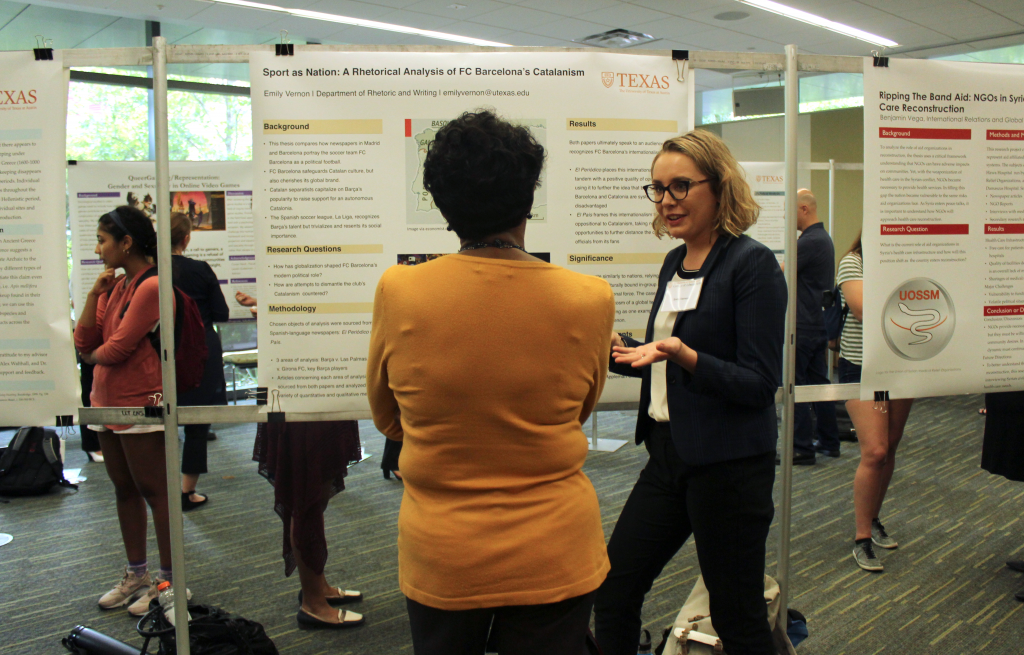
Emily Vernon is a Rhetoric & Writing and anthropology senior from The Woodlands, Texas. She analyzed the way coverage of FC Barcelona by different newspapers reflected their views on Catalan culture, even in sports coverage.
Can you describe your research project?
My thesis is a rhetorical analysis of FC Barcelona’s Catalanism between 2014 and 2018. For a good part of the last century, the soccer club has been employed as a political vehicle in the fight greater Catalan autonomy. That role has significantly changed since General Francisco Franco’s death in 1975; globalization and the increasing popularity of European soccer abroad have made the club’s games a hotbed for protests.
I analyzed articles from two Spanish-language newspapers — one of which leans left-of-center and is printed in Barcelona, and the other which leans more right-of-center and is printed in Madrid — about a variety of subtopics to better understand the rhetorical methods employed to effectively politicize a nonpolitical actor. There is nothing inherently political about a soccer team, and I hope that my research gives insight into the power of words in constructing identity and shows how that identity morphs with globalization.
How did you decide on your topic?
I played soccer for almost fifteen years and saw first-hand the importance players, parents and coaches placed on something as trivial as youth soccer. The emotions tied up in competitive games were always perplexing, and largely influenced my later college research. I find the cultural importance of sports a fascinating topic of study because it tells us so much about our society’s organization, our values and our creation of and tendency to abide by associated truths.

Additionally, as an anthropology and rhetoric & writing double major with a minor in information studies, I see this project as being the culmination of my undergraduate career at UT. Sports play a crucial cultural role, and understanding how they become politicized relies heavily on an understanding of the ways people grapple with information.
What were your findings?
The discourse presented in both papers recognized FC Barcelona’s global brand, but the framing of that brand was highly oppositional. The Catalan paper El Periódico paralleled this internationalism with a welcoming discourse, but nonetheless consistently framed FC Barcelona as disadvantaged in larger league decisions and paralleled their treatment to that of Catalonia under Franco. The Madrid paper, El País, aggressively worked to dismantle modern FC Barcelona’s representation of Catalonia, ultimately framing the club’s internationalism as oppositional to its role as a safeguard of Catalan culture.
To learn more about research in the College of Liberal Arts, visit the undergraduate research frontier site.
